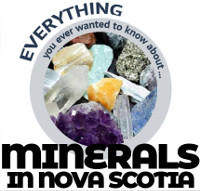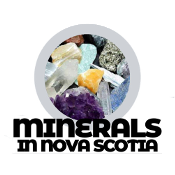- Why Mining Matters
- Jobs
- Safety
- Environment & Operations
- FAQ
- Links
- Fun Stuff
You are here

Gallihar and Dimock
Mr. Death
The Guilty Grenos
James Mitchell
Hugh McAskill
Gold Grows Under Shrubs?
Unexploded Dynamite
Tangier’s John Murphy
Joe Howe Dimock
Chats with Pioneer Miners
Charles Annand
John Scott Williams
Nicholas Fitzgerald
Chief Lonecloud
Pistols and Gold Mines
James MacDonald’s Thefts
John Vaughn
Herbert Dixon and the Halifax Explosion
James Bishop
Neily's Scandals
Waverley in 1934
Discovery of Gold at Dufferin
Hurricane Island
Fletcher and Faribault
Jack Munroe
Mine Apprentice Project
Small Gold Districts
15 Mile Stream
Tributers
E. Percy Brown and the Brookfield Mine
Barachois
Nova Rich Mines
Shad Bay Treasure Hunt
Montague 1937 Accident
Father Lanigan’s “Prospect”
George V. Douglas
The Stewart Brothers
Goldboro
Moose River's Touquoy Mine
Camerons Mountain
Jim Campbells Barren
Stanburne's Puzzling Gold Mine
Pockwock
Beaverbank Lake
Banook Mining Company
Deep Gold Mining
Wellington
Arsenic and Gold
Dynamite
War of Words
King of the Klondike
Oliver Millett
Kempt Gold Mining Company
Carleton
The Memramcook Fiasco
Love and Gold in Oldham
Montague 1893 Disaster
Central Rawdon Consolidated Mines
Cochrane Hill
Amateurish Early Gold Mining
Sable Island Gold
The Sea Wolf
Trueman Hirschfield
Alexander Heatherington
Prospector Joe Cope
Killag Quicksand
George W. Stuart
Wellington
Billy Bell
Cooper Jim Mine
South Branch Stewiacke
Walter Prest
Lake Charlotte
Acadia Powder Mills Company
The Ovens Anticline
Moose River Anticline
Avon Mine Explosion
Montague
Waverley Claims Dispute
Avon River
Moose River Disaster
Mooseland Scam
New York and Nova Scotia Gold Mining Company
Rosario Siroy and the South Uniacke Gold District
Blockhouse
Killag Gold District
Miller Lake
Baron Franz von Ellershausen
Mooseland: Nova Scotia’s first Gold Discovery
United Goldfields of Nova Scotia
Pleasant River Barrens Gold District
Lochaber Gold Mining Company
Rawdon Gold Mines
MacLean Brook
Gold in Clayton Park?!
Forest Hill
Meguma vs. Placer Gold
Uniacke
Voglers Cove
Gold River
Moosehead
Goldenville
Westfield
Indian Path
Harrigan Cove
Centre Rawdon
Nova Scotia’s Gold Mining History
WWII Gold
Middle River Gold District
Early Gold Discoveries
Halifax 1867
Paris Exhibition 1867
Mining and Tourism
An Act relating to the Gold Fields
Molega Gold District
Brookfield Gold District
Gays River
Halifax Gold
Caribou Gold District
Renfrew Gold District
Oldham Gold District
Whiteburn Gold District
Country Harbour Mines
Waverley Gold District
Robert Henderson and Klondike Gold
George Mercer Dawson
Cow Bay Gold District
Lake Catcha Gold District
Wine Harbour Gold District
Forest Hill
Samuel D. Hudson discovered gold-bearing quartz boulders in the Forest Hill Gold District in June 1893, and in June 1894, he and his brother discovered the Ophir lead.
Mining really began in Forest Hill, Guysborough County, in 1895 and what had been only a wilderness was transformed by the end of 1896 into an active mining district with three mills, two or three stores, a schoolhouse, and a population of 200-300. Some of the main veins mined at Forest Hill were the “Schoolhouse Veins,” undoubtedly located underneath the schoolhouse.
Mining operations were very active during the first five or six years of the district's history but then came a period of only intermittent activity until 1916.
Total production from 1895-1916 was about 29,792 ounces of gold, a fairly impressive figure given that mining took place only intermittently. (Historical reporting of Forest Hill’s production was combined with that of several other gold districts in the Country Harbour area, such as Stormont and Isaac Harbour, so Forest Hill’s production is estimated.)
In those early years the mining simply followed the visible gold and was carried out by the sinking of vertical shafts or pits. The quartz was hand-cobbed and stamp mills were used to liberate the coarse gold from its host rock, along with gravity separation and amalgamation using mercury. It’s been estimated that this process only recovered about 60% of the gold in the ore, a reminder of how rudimentary gold mining was then compared to the sophisticated science it is now.
Nova Scotia gold mines have not used mercury since the early 1900s because it’s bad for the environment.
After years of inactivity, mining started again in 1934 on the Schoolhouse Vein using a 10-stamp mill. Eventually, the Schoolhouse was worked to a depth of 103 metres. Several of the other shafts were also deepened and some work was done on the Ophir Vein.
Mining and exploration on various veins continued until 1956 when activity dropped off again.
Exploration started again in 1971 and has continued on and off since. In 1985-86, an exploration shaft was sunk to 230 metres below surface and a high grade zone of ore was mined by Seabright Resources on the newly discovered Adams Vein, named after Ken Adams, chief geologist on the project. Reports from this period indicate that gold at Forest Hill occurs in very rich pockets called “jewelry boxes” by the miners.
In December 1985, Seabright purchased the former zinc-lead mine at Gay's River, Nova Scotia, from Esso Resources for $3.5 million (https://notyourgrandfathersmining.ca/gays-river). Seabright converted the mill to process gold from its various properties including Forest Hill and Beaver Dam.
Seabright Resources was acquired by Western Mining Corporation of Australia in 1987 and its related company, Westminer Canada Limited, took over Forest Hill. Westminer continued development at Forest Hill until 1989.
Exploration data from the Seabright/Westminer years suggests the site has significant potential to be a modern mine, like so many other historical Nova Scotia gold mines. In fact, almost all the activity in Nova Scotia’s gold sector is at historical mines where deposits were proven during our early gold rushes but modern science and technology make it possible to mine profitably while, of course, taking proper care of the environment.

















































































